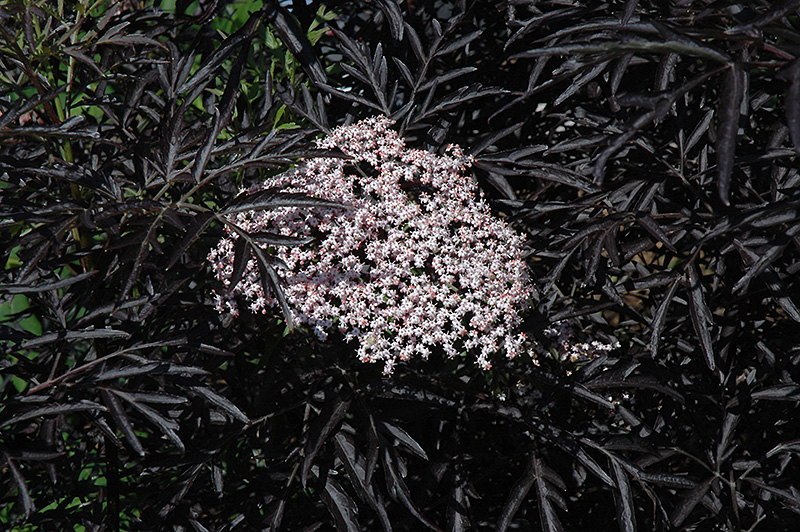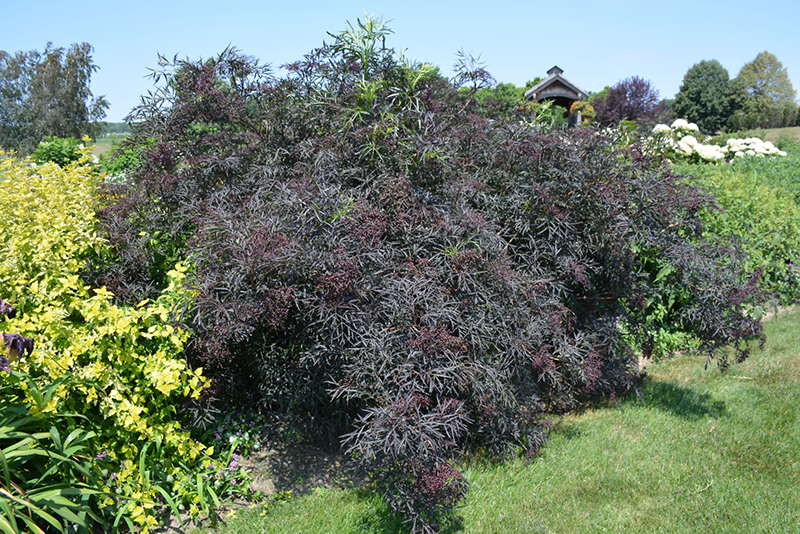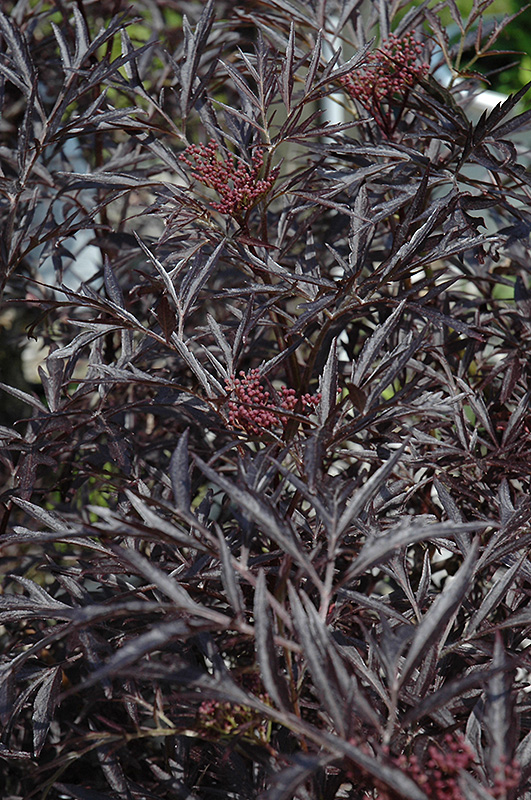Plant Finder
Black Lace® Elder - New For 2025!
Sambucus nigra 'Eva'
Height: 10 feet
Spread: 8 feet
Sunlight:
![]()
![]()
Hardiness Zone: 4
Other Names: Common Elder
Brand: Proven Winners
Description:
A most impressive garden shrub with very fine, cutleaf dark purple foliage bordering on black, soft pink flowers look stunning against it in summer; a perfect substitution for Japanese maples where they are not hardy, use in a similar context
Ornamental Features
Black Lace® Elder features showy clusters of fragrant shell pink flowers held atop the branches in early summer, which emerge from distinctive rose flower buds. It has attractive deep purple deciduous foliage. The deeply cut compound leaves are highly ornamental but do not develop any appreciable fall color. The deep purple fruits are held in clusters in early fall.
Landscape Attributes
Black Lace® Elder is a multi-stemmed deciduous shrub with an upright spreading habit of growth. It lends an extremely fine and delicate texture to the landscape composition which can make it a great accent feature on this basis alone.
This is a high maintenance shrub that will require regular care and upkeep, and is best pruned in late winter once the threat of extreme cold has passed. It is a good choice for attracting birds to your yard. Gardeners should be aware of the following characteristic(s) that may warrant special consideration;
- Suckering
Black Lace® Elder is recommended for the following landscape applications;
- Accent
- Mass Planting
- General Garden Use
- Naturalizing And Woodland Gardens
Planting & Growing
Black Lace® Elder will grow to be about 10 feet tall at maturity, with a spread of 8 feet. It has a low canopy with a typical clearance of 1 foot from the ground, and is suitable for planting under power lines. It grows at a fast rate, and under ideal conditions can be expected to live for approximately 30 years.
This shrub does best in full sun to partial shade. It is quite adaptable, prefering to grow in average to wet conditions, and will even tolerate some standing water. It is not particular as to soil type or pH. It is highly tolerant of urban pollution and will even thrive in inner city environments. This is a selected variety of a species not originally from North America.




